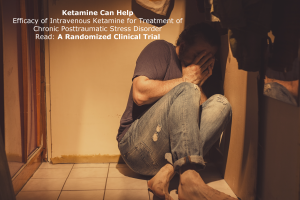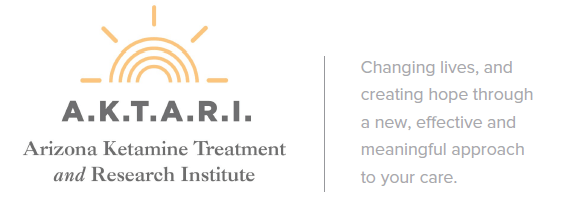Posttraumatic Stress Disorder Treatment with Ketamine
Described as a “growing epidemic” by the National Institutes of Health (NIH), Posttraumatic Stress Disorder (PTSD) affects nearly 8 percent of Americans at some point in their lifetime. Its life-crippling effects include personality changes, signs of depression, heightened anxiety, avoidance behavior, a hyper-sensitive startle reflex, along with difficulty sleeping, flashbacks and nightmares. PTSD sufferers may have difficulty holding down jobs, maintaining relationships, and participating in activities they once enjoyed. These effects can last a lifetime, and standard treatment is often only minimally effective.
Looking more closely at the brain, it appears that Ketamine activates a circuit in the brain involved with resilience and resistance to stress. The beneficial effect of PTSD treatment with Ketamine was serendipitously discovered in the American military battlefield hospitals in Iraq in the 1990s. Soldiers injured in battle had surgical treatment in these hospitals, some under Ketamine general anaesthesia, and some using other types of general anesthesia. As an incidental finding, it was discovered that the soldiers who had surgery using Ketamine anesthesia rarely or never developed PTSD afterward, but up to 30 percent of the soldiers who used other forms of surgical anesthesia did develop PTSD. Military physicians discussed this information with psychiatrists, and developed the idea that somehow Ketamine provides effective therapy to reduce or eliminate PTSD in many people who have experienced a traumatic event.

PTSD was once described as “shell shock”. Emergency medical personnel, members of the military, and survivors of accidents or other traumatic events are at particular risk for developing PTSD. Victims of crime and abuse, and survivors of natural disasters, accidents, and bombings are all susceptible.
Medically-supervised Ketamine infusion therapy is now available to those suffering from PTSD, and prospects for recovery look good. Study results indicate that blocking NMDA glutamate receptors with Ketamine, particularly in the area of the brain dealing with emotion and long-term memory, bridges over deeply held thought and fear patterns, freeing patients from long term effects of traumatic memories. Patients who have received Ketamine infusions have also seen a rapid reduction or cessation of suicidal thoughts, and relief from depression and anxiety, all symptoms that often co-exist with PTSD.
Arizona Ketamine Treatment and Research Institute (AKTARI) has an active treatment program for PTSD. We offer medically-supervised Ketamine infusion therapy to individuals suffering from this disorder, including military personnel, veterans, and trauma victims. Appointments for treatments are available Monday-Friday, between 8:00 a.m. and 5:00 p.m. Contact us or call us at 480-626–2727 for more information regarding Ketamine for PTSD. There is hope and there is help using this innovative new treatment for PTSD.
“Our results provide the first evidence that a single dose of IV Ketamine was associated with rapid reduction of core PTSD symptoms and reduction in comorbid depressive symptoms.”
Dr. Dennis Charney, MD, Icahn School of Medicine at Mount Sinai, New York
“Ketamine, a fast acting anesthetic with anti-depressant properties, may provide a new avenue to help extinguish the fearful memories at the heart of this disorder [PTSD].”
Society for Neuroscience
“We’ve known for some time that glutamate is important in burning in memories. And we know that about 30-40 percent of PTSD patients also have depression, so we thought that Ketamine might be an important treatment possibility.”
Dr. Neil Fournier, Yale University School of Medicine
